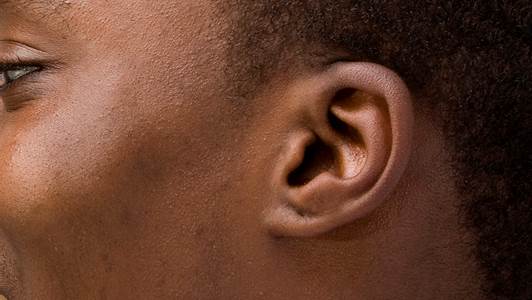Protect your hearing

Your hearing is precious
Simple steps now to help prevent noise-induced damage over time.
We protect our eyesight, teeth and bodies with regular check-ups. We even ensure the health of our hair with regular trips to the hairdresser. But very few of us take steps to ensure our hearing health. Yet hearing loss can lead to debilitating physical and mental health problems.
Almost 116,000 Australians aged 45 and over are estimated to be at risk of severe to profound hearing loss – but according to a 2011 study published in The European Journal of Public Health, just 3% are getting treated. The reluctance to look after our hearing is a major concern.
Surprisingly, everyday noises such as lawn mowers, noisy restaurants, passing a garbage truck and even daily train travel can damage hearing.
Sound volume is measured in decibels (dB), and hearing loss can be a result of both length of exposure to a noise and loudness of sound. Noises higher than 70 dB are considered loud, and the level at which noise can cause permanent hearing loss begins at about 85 dB, typical of a hairdryer, food processor or kitchen blender.
Then there are personal music devices, which many are cranking up without considering the damage it may be doing to their hearing.
“The level at which noise can cause permanent hearing loss begins at 85 dB, typical of a hairdryer, food processor or kitchen blender.”
Things you can do to prevent hearing loss
There is no definite cure for noise-induced hearing loss. But there are some steps you can take to help protect your ears from damage.
- Avoid exposure to loud noises, or reduce the amount of time spent in these environments.
- Wear hearing protection when mowing the lawn or using other noisy equipment (particularly if you’re going to be around sounds louder than 85 dB for a long period of time).
- Use noise-cancelling earplugs when travelling on trains or planes.
- Cover your ears when emergency vehicles pass in the street.
- Consider mobile apps that can detect high decibel sounds that could be damaging your hearing.
- If you’re attending a concert, stand away from amplifiers and speakers and consider ear plugs.
- When using personal stereo systems, keep the sound at enjoyable but safe levels.
- Consider wearing hearing protection when you know you’re going to be around loud sounds.
Don’t suffer in silence
People with severe to profound hearing loss can struggle to hear in crowded places. They often find it difficult to hear on the phone, difficult to keep up at work and have problems talking with family and friends. They may not be able to hear children’s voices clearly.
Identifying a hearing problem is the first step towards finding a long-term solution, and getting a hearing test is your first step to better hearing. It’s as simple as making an appointment with an audiologist for a hearing test.
If you do have a problem, there’s a range of options available, including hearing aids. The most important thing to remember is that it doesn’t matter how old you are or how severe your hearing loss is – it’s never too late to seek a solution.
Even if your hearing aids are no longer effective, there are other solutions available, such as a cochlear implant. Cochlear implant recipient Sue Walters from Sydney says her implant is a blessing. “Cochlear has given me the greatest gift with my cochlear implants. I have been able to hear my children as they grow up, I can talk with everyone and even use the phone at work.”
Written by Medibank
